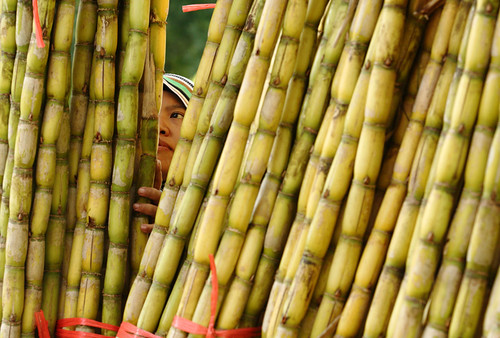As oil and gas prices soar, Brazil is planning to become
a world hub for plastics made up of plant-based materials, as well as sugar
cane.
Try to imagine a plastics factory where you are most
likely seeing an industrial eyesore belching smoke and fireplace into the sky
at a city's edge. However, Dow Chemical (DOW) and different massive plastics
manufacturers have a a lot of bucolic vision of what some plants can appear in
the future, and they are heading to Brazil to create them.
The "factories" they need in mind are a lot of
like farms: A sugar cane plantation with 11-foot stubble for miles around,
surrounding a plastics plant that runs wholly on cane, emits a fraction of the
greenhouse gas spewed by standard plants, and by the way, generates enough
additional electricity to lightweight a town of five hundred thousands.
Today 9 percent of world's oil production is used in
creating plastics, that itself could be a $350 billion-a-year business. However
as oil costs rise, Brazil, a country where sugar cane ethanol already fuels
most vehicles, is attending to become a worldwide hub for organic plastics—that
is, those made of plant-based materials. Brazil's organic plastics are
typically labeled "bioplastics" since they're made of plants, however
whereas recyclable, they do not soften into the atmosphere when cast-off, like
biodegradable plastics do.
No Replacement for ancient Plastics
Brazil is already the number eight producer of
petroleum-based plastics, where can soon be the biggest producer of organic
ones, in step with Dow and Braskem. Each firms say they've mastered
technologies to show sugar cane into polyethylene, the foremost common plastic.
By 2012, they targeted 10% of Brazil's plastic can come back from cane rather
than petroleum.
To be certain, the bioplastics business will not displace
traditional plastics anytime soon. Basically the 1.2 billion pounds of organic
plastic that Dow and Braskem commit to manufacture in Brazil by 2012 can meet
less than one percent of world plastic demand, that itself is growing by five
percent a year. However each firms, in conjunction with Belgium's Solvay
(SOLB.br) and Brazil's Petrobras (PBR), hope to make additional such plants
within the country.
The drive for substitute plastics is being fuelled by oil
costs, eco-minded shoppers, and therefore the economic success of oil
substitutes like Brazilian ethanol. Organic plastics are around for ages,
however high prices and pesky options in a number of them—such as a bent to
soften when exposed to low heat—meant they posed very little threat to the petro
plastics that are employed in everything from Zip-Lock luggage to Barbie dolls
and condoms.
Please don't forget to check our website ecogreen4us.com for more eco & green products and services

No comments:
Post a Comment